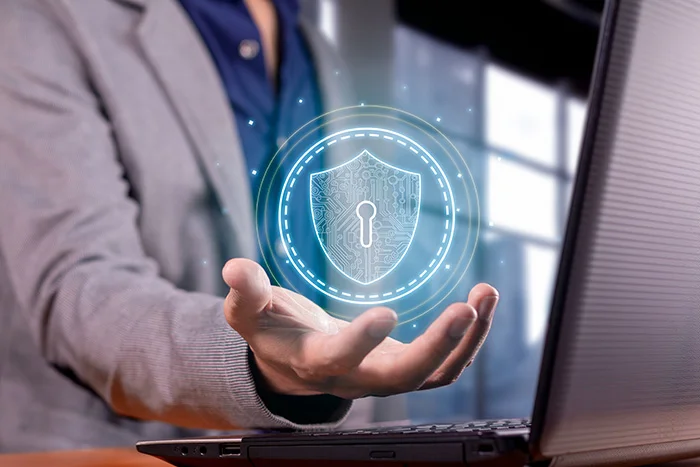In today’s increasingly digital environment, cyber security is a crucial aspect that every business, especially small to medium-sized enterprises (SMEs) in Brisbane, should prioritise. With the rise in cyber threats, having robust cyber security measures is essential to protect your business data, client information, and overall reputation. Here are the top 20 cyber security tips every business should know to ensure you stay safe and secure online.

View Our Managed IT Services
1. Implement Strong Password Policies
Ensure that all employees use strong, unique passwords. A strong password includes a mix of letters, numbers, and special characters. Encourage the use of password managers to store and manage passwords securely.
2. Enable Multi-Factor Authentication (MFA)
MFA adds an extra layer of security by requiring users to provide two or more verification factors to gain access to resources. This reduces the risk of unauthorised access even if passwords are compromised.
3. Regularly Update Software and Systems
Ensure that all your software and operating systems are up to date. Regular updates often include patches for security vulnerabilities that cybercriminals could exploit.
4. Educate Employees On Cyber Security Awareness
Regular training sessions on cyber security awareness tips for employees can help prevent many cyber threats. Employees should be aware of phishing scams, safe internet practices, and how to handle sensitive information.
5. Use Anti-Virus And Anti-Malware Software
Install reputable anti-virus and anti-malware software on all devices. Ensure these are updated regularly to protect against the latest threats.
6. Secure Your Wi-Fi Networks
Ensure your Wi-Fi network is secure by using strong passwords and encryption methods like WPA3. Avoid using default passwords for routers and network devices.
7. Implement Data Encryption
Encrypt sensitive data both in transit and at rest. Encryption ensures that even if data is intercepted, it cannot be read without the decryption key.
8. Backup Data Regularly
Regularly back up your data to ensure that you can recover it in the event of a cyber-attack. Store backups off-site or in the cloud with secure access controls.
9. Limit Access To Sensitive Information
Implement role-based access controls (RBAC) to ensure employees only have access to the information necessary for their roles. This reduces the risk of internal data breaches.

10. Create a Cyber Security Incident Response Plan
Develop and regularly update an incident response plan. This plan should outline the steps to take in the event of a cyber security breach, including communication protocols and recovery procedures.
11. Conduct Regular Security Audits
Regularly review and audit your security measures to identify potential vulnerabilities. This can be done internally or by hiring an external IT managed services company in Brisbane to conduct the audits.
12. Implement Firewalls
Use firewalls to protect your internal network from external threats. Firewalls can block unauthorised access and prevent malicious traffic from entering your network.
13. Monitor Network Traffic
Regularly monitor your network traffic for unusual activity. Intrusion detection systems (IDS) and intrusion prevention systems (IPS) can help identify and mitigate potential threats.
14. Secure Physical Access to Devices
Ensure that physical access to computers, servers, and other devices is restricted. Use locks, access cards, and surveillance to protect your hardware from theft or tampering.
15. Use Secure Communication Channels
When transmitting sensitive information, use secure communication channels such as VPNs or encrypted email services to protect data from being intercepted.
16. Regularly Review Third-Party Access
Ensure that third-party vendors or partners who have access to your network or data comply with your security policies. Regularly review and update their access permissions.
17. Implement Mobile Device Management (MDM)
With the increasing use of mobile devices for business purposes, MDM solutions can help secure and manage these devices. Ensure that all mobile devices are protected with strong passwords and encryption.
18. Promote Cyber Safety Culture
Create a culture of cyber safety within your organisation. Encourage employees to report suspicious activities and make cyber security a shared responsibility.
19. Stay Informed About Cyber Threats
Keep up to date with the latest cyber security news and trends. Subscribe to cyber security newsletters, follow relevant blogs, and participate in industry forums to stay informed about emerging threats.
20. Use a Cyber Security Checklist
Use a cyber security checklist to ensure that all necessary security measures are in place and functioning correctly. This can help you stay organised and ensure no critical steps are overlooked.
By following these top 20 cyber security tips, you can significantly reduce the risk of cyber-attacks and enhance your overall security posture. Implementing these practices not only protects your business but also builds trust with your clients and partners.
Stay safe and secure with these essential cyber security tips from 9spheres Technologies, your trusted partner in managed IT services in Brisbane. If you need a hand implementing these tips, reach out to our team.
FAQ
Some basic cyber security tips include using strong passwords, enabling multi-factor authentication, regularly updating software, and educating employees about cyber security threats.
Cyber safety refers to the practices and precautions you take to protect personal and organisational information online. This includes safeguarding against cyber threats such as phishing, malware, and hacking attempts.
Certainly! Some essential cyber safety tips for small businesses are: implementing strong password policies, securing Wi-Fi networks, regularly backing up data, and using anti-virus software.
Cyber security awareness tips involve educating your employees about recognising and responding to cyber threats. This includes training on identifying phishing emails, understanding the importance of password security, and reporting suspicious activities.
Implementing cyber security safety tips effectively requires a combination of regular employee training, updating security measures, using encryption, and conducting regular security audits.
Your employees should be aware of the importance of not sharing passwords, recognising phishing attempts, using secure networks, and reporting any suspicious activities immediately.
Cyber security is crucial for small businesses because it protects against data breaches, financial losses, and reputational damage. Ensuring robust cyber security measures can help you maintain customer trust and business continuity.









